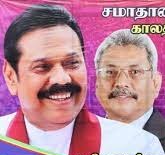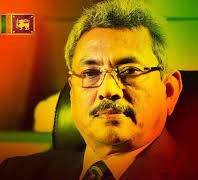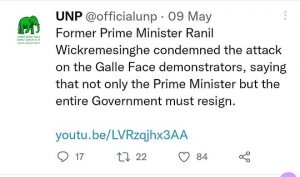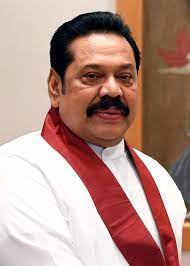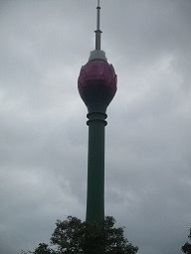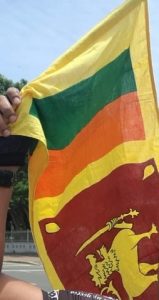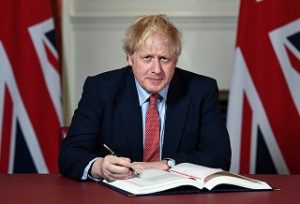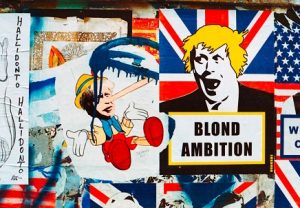
© Carolco Pictures / Tri-Star
One of the depressing things about being in your (later) middle years is that the people who were your heroes in your youth start to die with an alarming frequency. Yes, they’ve become old and this is to be expected, but it’s still depressing. This month has seen the departures of Alan Grant, the Scottish comic-book writer whose career took him from DC Thomson in Dundee to DC Comics in America, and who played a big role in shaping Judge Dredd, the signature character and strip of 2000AD, my favourite comic, as well as writing stories for Strontium Dog, Robo–Hunter and Batman; of the actor L.Q. Jones, who was best known for appearing in American western movies and TV shows of the 1950s and 1960s and was one of the very last, recognisable ‘cowboy actors’ still alive; and of the wonderful English character-actor David Warner, about whom I wrote this blog-entry on his 80th birthday last year. By a sad coincidence, Jones and Warner were also the final survivors of the repertoire who worked with director Sam Peckinpah in a string of classic movies.
And July 2022 saw the death of director Bob Rafelson, whose credits include Head (1968), Five Easy Pieces (1971) and The Postman Always Rings Twice (1981). By way of a tribute, here’s a slightly updated piece I wrote eight years ago about a Rafelson movie that, I felt, had unfairly disappeared under the radar – 1990’s Mountains of the Moon.
Some of you may be old enough to remember the heyday of Ladybird Books, a company that published children’s books emphasising the educational, the wholesome and the patriotic. The library at my primary school was stuffed full of them. Their historical tomes were given special prominence on the shelves. These dealt with famous figures in British history like Admiral Nelson, Captain Cook, Florence Nightingale and David Livingstone and painted glowing and sanitised portraits of them.
These historical characters, according to Ladybird, were fine, upstanding and virtuous, qualities that British people had traditionally prided themselves on having. Also, the establishment they represented, back in the days of British imperialism and the British Empire, was by extension a fine, upstanding and virtuous thing too. Needless to say, Ladybird Books didn’t trouble the minds of its young readers with such topics as Admiral Nelson’s dalliance with Mrs Emma Hamilton, or Brigadier-General Reginald Dyer’s orchestration of the Amritsar Massacre in 1919, or indeed Winston Churchill’s opinions of Afghans, the ‘feeble-minded’, women, Jews, Trade Unionists, the Irish, Indians and using chemical weapons.
And yet… I can understand anyone, at a young age, being enthusiastic about the damned things. In my childhood, I loved the Ladybird history books because they served up two things that were vital for a kid: heroes and adventures. Never mind the fact that they overlooked the moral complexities of character and the moral ambiguities of history. It was simply, viscerally exciting to read about people who were, supposedly, both incredibly decent and incredibly brave, setting off to perform feats of derring-do in a world that, a couple of centuries ago, seemed full of danger and mystery.

© Carolco Pictures / Tri-Star
This brings me in a roundabout way to Mountains of the Moon, the Bob Rafelson-directed movie from 1990, which tells the story of Victorian explorers Richard Burton and John Speke and their 1857 expedition to find the source of the River Nile. I suspect the reason I like this film so much is because it lets me have my cake and eat it. On one hand, it offers a tale of British historical adventure that’s as thrilling as anything in the old Ladybird Books. On the other hand, it’s critical of the British Empire and the people who ran it. You can enjoy the exploits of the two protagonists as they battle their way past peril after peril but, simultaneously, you don’t have to feel guilty for doing so.
Mind you, I don’t ever remember seeing a Ladybird volume dedicated to Sir Richard Francis Burton, despite the fact that Burton, as his Wikipedia entry puts it, was a ‘geographer, explorer, translator, writer, soldier, orientalist, cartographer, ethnologist, spy, linguist, poet, fencer, Egyptologist and diplomat’ and spoke 29 languages, including Icelandic, Swahili, Amharic, Sanskrit and Hebrew. The lack of a Ladybird biography on Burton may be down to Burton’s fascination with the sexual practices of the many cultures he visited, which ‘led him to take measurements of the lengths of the sexual organs of male inhabitants of various regions which he included in his travel books’; or to the rumour that during his military career he once went ‘undercover to investigate a male brothel reputed to be frequented by British soldiers’. Less salaciously, Burton was simply a loose cannon. His unruly reputation prevented him from being promoted to the very heights of the British establishment, either as a soldier or as a diplomat.
In the Mountains of the Moon, Burton is played by Irish actor Patrick Bergin. From the movie’s opening scenes – when we see Burton have a spear thrust his mouth by some natives in Somalia, a mishap that’d deter most other people from ever wanting to set foot beyond their front gate again, but with Burton seems only to enflame his passion further for travel and exploration – Bergin does a good job of capturing the man’s versatility, unpredictability and boundless energy. Indeed, if there’s one thing the film conveys beautifully, it’s the glorious insanity that propels Burton and Speke into the unknown, determined to make sense of it; whilst enduring hardships, indignities and degradations a million miles removed from the cosy, cloistered lives they led in upper-class Victorian Britain. During the 1857 expedition, Speke – who in Mountains of the Moon is played by Iain Glen – is almost driven mad by beetles crawling into his ears while Burton becomes crippled, his legs swelling up to the point where they need to be lanced. Come to think of it, the Ladybird books kept clear of stuff like this too.
While the film celebrates the two men’s heroism – and heroic powers of endurance – it disdains a British imperial establishment that’s supportive of them because it hopes to enjoy the prestige of their achievements; but that’s also manipulative and untrustworthy. It’s a historical fact that by the early 1860s Burton and Speke had fallen out, due to a claim by Speke that the source of the Nile lay in Lake Victoria. This was something that the British press of the time was only too happy to believe and it led to Speke being feted and celebrated. Meanwhile, Burton’s role in the 1857 expedition was played down.
Mountains of the Moon would have you believe that one reason for this was Burton’s Irishness. His father was of Anglo-Irish stock, though Burton himself was born in Devon. Here, with Bergin in the role and displaying a recognisable Celtic brogue, Burton seems more Irish than he probably was in real-life. Speke on the other hand was an English gentleman of the stiff-upper-lip variety, whom the establishment found more palatable to sell as a hero of the Empire. Actually, it’s a bit ironic that actor Iain Glen is a Scotsman, from Edinburgh.

© Carolco Pictures / Tri-Star
The feud between the two explorers came to a sudden and unexpected end in September 1864, one day before Burton and Speke were scheduled to debate the Nile’s source at a meeting of the British Association for the Advancement of Science. Hunting on a relative’s estate, Speke was killed when his gun discharged itself into him while he was climbing over a wall. This caused speculation that the controversy that’d soured things so badly between him and his old comrade had led Speke to kill himself, although a jury later ruled that it’d been an accident. Mountains of the Moon remains ambiguous about Speke’s death, but the door is left open for the possibility that, upset about how the establishment had set him and Burton at each other’s throats, Speke committed suicide.
Also indicative of British attitudes at the time is the neglect shown to the African guide Sidi Mubarak Bombay, who in Mountains of the Moon is engagingly played by the Kenyan actor Paul Onsongo. He proved invaluable to Burton and Speke, and later served with Henry Morton Stanley, and crossed Africa from east to west in 1873, and became the British Empire’s most travelled citizen in Africa. Eventually, he clocked up some 9600 kilometres, most of it covered on foot. Despite this, we learn in a postscript that nobody ever thought of inviting Bombay to Britain, presumably because of his lowly ‘native’ status.
The rest of the cast is good too. The distinguished theatrical actress Fiona Shaw turns in a lovely performance as Isabel Burton, the woman who manages to capture the rumbustious Burton’s heart. She doesn’t, though, capture it to the point where he stops voyaging off to the back of beyond for years on end. As Speke’s publisher, Richard E. Grant gives a performance of superciliousness that only Grant himself seems capable of. And Bernard Hill sneaks in an endearing late-minute cameo as Scottish explorer and missionary David Livingstone, who gets involved in a somewhat homoerotic duel with Burton. Desperate to impress each other, both men strip off to compare their Africa-acquired scars.

© Carolco Pictures / Tri-Star
In retrospect, the only things that are regrettable about Mountains of the Moon are: (1) how overlooked the film is; and (2) how low-key Patrick Bergin’s film career has been since. Regarding the second point, although he made a stir as Julia Roberts’ psychotic husband in 1991’s popular but not-very-good Sleeping with the Enemy, Bergin’s fortunes took a tumble with a couple of unfortunate film choices afterwards. His performance as Robin Hood in the 1991 movie of the same name was buried by the success of the same year’s bigger, brasher, sillier, Kevin Costner-starring, Robin Hood, Prince of Thieves. Meanwhile he was unlucky enough to play a villain in 1992’s ignorant Tom Clancy / IRA thriller Patriot Games, or as it was known in Ireland, Patronising Games.
I suspect these days Bergin derives more pleasure from his music. He has a band called Patrick Bergin and the Spirit Merchants and they’ve made the Irish top ten. That said, a few years ago, I was delighted to see him turn up in Ben Wheatley’s tongue-in-cheek gangster / terrorist bloodbath Free Fire (2016).
As for the commercial failure of Mountains of the Moon, it certainly didn’t help that its production company (Carolco Pictures) was in the process of going bankrupt at the time and its distributor (Tri-Star) was more interested in promoting another historical drama, Edward Zwick’s Glory (1989), which it’d produced itself. Neither did the film’s lack of bankable ‘big-name’ stars help its fortunes. But the way the film has been critically neglected is harder to fathom. Maybe it had the bad luck to appear at a time when imperial-era British costume epics of the David Lean / James Ivory school were starting to out of fashion, although Mountains of the Moon certainly doesn’t deserve to be lumped in with such staid fare as Chariots of Fire (1982) or A Room with a View (1985).
Director Bob Rafelson, alas, has just passed away and the titles that’ll likely be inscribed on his tombstone are of his earlier films, like 1972’s Five Easy Pieces or 1981’s The Postman Always Rings Twice or even Head, that trippy 1968 epic featuring the Monkees. But at least Rafelson himself recognised the quality of his lost 1990 classic. “(W)hen people ask me, ‘If you were to come to our country and we will give you some kind of an homage, what movie would you want to show?’” he once told an interviewer, “…I always say, ‘Top of the list is Mountains of the Moon.’”

From imdb.com / © Carolco Pictures / Tri-Star

